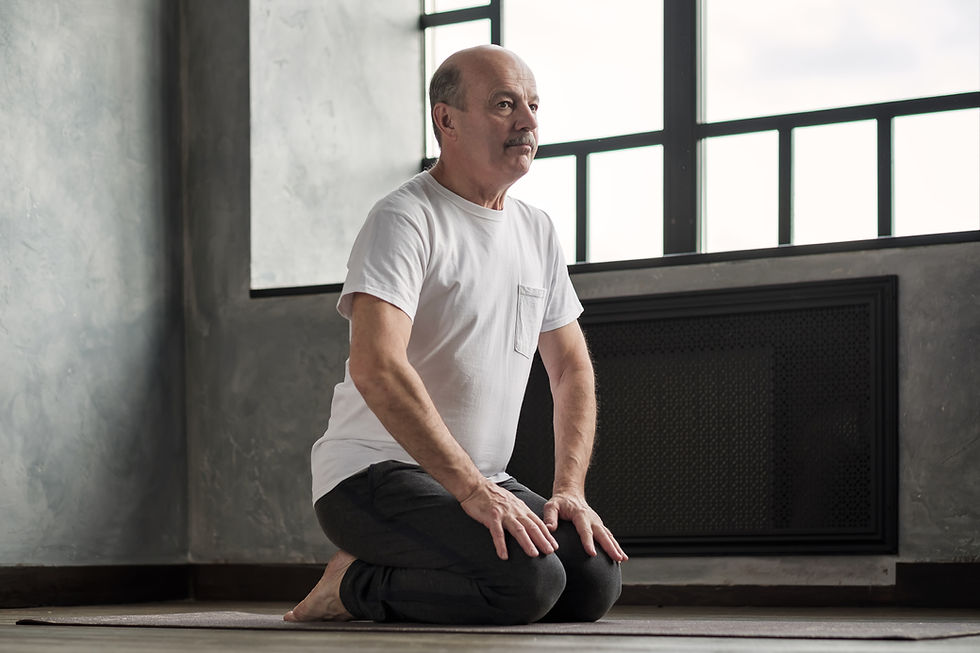The Power of Mindset
- Leonard Fingerman

- Oct 12, 2020
- 3 min read
Updated: Dec 23, 2020

The expression “Where there’s a will there’s a way” applies to many aspects of our lives, not least of all, to our health. Most of us understand the value of wellness and a healthy lifestyle but sometimes struggle with following through. January’s gym commitment is forgotten in February, the snooze button is far more tempting than a cold morning jog. Sometimes it may seem like there are far too many barriers between us and a healthy lifestyle and carving out time and energy to navigate these obstacles is tough to come by. This is where the power of the positive mindset becomes important. Some might say mindset is the key to a lifetime commitment to fitness.

Focus on the “Why”
Developing healthy habits is a process that requires care and effort. Before beginning a journey toward wellness, it is essential to acknowledge “the why”. Why are you ready to commit yourself to personal well-being? Why do you want to succeed this time? Why is this important to you? Understanding our motivations is a critical component of the positive mindset. It sets us on the right path forward because we understand the importance of the choices we are making. The answer to “the why” will be different for everyone. Some may want to lose weight ahead of a special occasion, others may want to train for a marathon, and others still may just want to be able to get down on the floor to play with their grandkids. The more personal and meaningful “the why”, the more likely it will be to stick to the program long term. If your motivation is to simply lose 10 pounds before vacation, then you may revert back to old habits after the holiday. On the other hand, if you’re motivated to get in shape in order to stave off diabetes, you are more likely to make permanent changes to your diet and exercise plans. Find “the why” and let it be the driving force behind your quest for better health.
Prioritize your own well-being

Most of us lead busy lives. Work, school, children, caring for aging parents--our various responsibilities may take over our days and overwhelm us. When we’re tired and stressed, it’s far too tempting to take a break with a pint of ice cream in front of the TV than to hit the gym. If you’re caught in this cycle, it is time for a change in mindset. It is essential to shift priorities and carve out time for yourself. Commit to making good choices to benefit yourself. Maybe this means allowing the kids to play on the computer longer so that you can exercise. Or take a walk during lunch instead of eating in front of the computer. There are some who sleep in their jogging clothes so they can roll out of bed and go on their morning run without even a minute of delay. Others work out at home with online videos and cans of beans for weights. Even something as small as swapping fries for a salad means you’re prioritizing your health and are using the power of a positive mindset to stay focused on self care.
Long term strategy, short term actions

A positive mindset is an investment in the quality of your life. Health is an ongoing process and the right mindset will equip you with motivation, will power and a sense of accomplishment. It’s important to view self care as a long term strategy which should be sustained by short term actions. Take steps each day to support your health goals. And here’s where the right mindset comes in again. It is essential to stop thinking of health and fitness as a chore. Instead, think of wellness as a lifestyle and a daily practice. This shift in mindset requires us to be kind and patient with ourselves. We will stumble or make mistakes along the way. A positive mindset won’t allow us to give up; it will remind us to keep going.
At the end of the day, mindset alone isn’t enough. Ultimately, we need to do the work. Whether it’s exercising, eating right, or improving sleep, the hard work you invest in your health will bring the results toward which you’re striving. Remember these helpful tips along your journey:

Take baby steps; big changes don’t happen overnight
Doing something is always better than doing nothing, so get moving
Find a supportive network to cheer you on
Make a routine and stick to it
Use aids like music or meditation to get through the tough parts
Identify rewards other than food
Allow yourself a break. Then get back up and continue where you left off



Comments